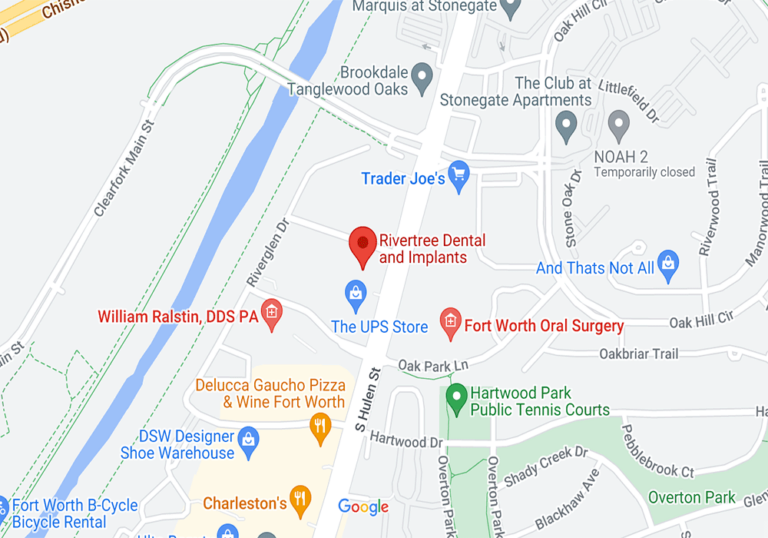Emergency Dentistry
Dental problems aren't planned, and appointments can't always be scheduled in advance. When you need emergency dentistry services we will work to restore your smile as quickly as possible so that you can put the pain and the injury behind you.
Emergency Dentistry in Fort Worth, TX
Dental issues and accidents can happen at any time. Sometimes requiring immediate treatment, and when that is the case, we are here to assist. If you are searching for emergency dentistry in Fort Worth, RiverTree Dental and Implants is your solution.
Our experienced and knowledgeable team knows that a dental emergency is never easy, but we are here to help and want to get you well as soon as possible. We offer affordable, emergency dental care that will get you back in good health. We offer a wide range of emergency dental services, and we are always available to see patients who need immediate care.
More Questions?
If you have more questions about emergency dental care, please contact our office and we will be happy to discuss further.

